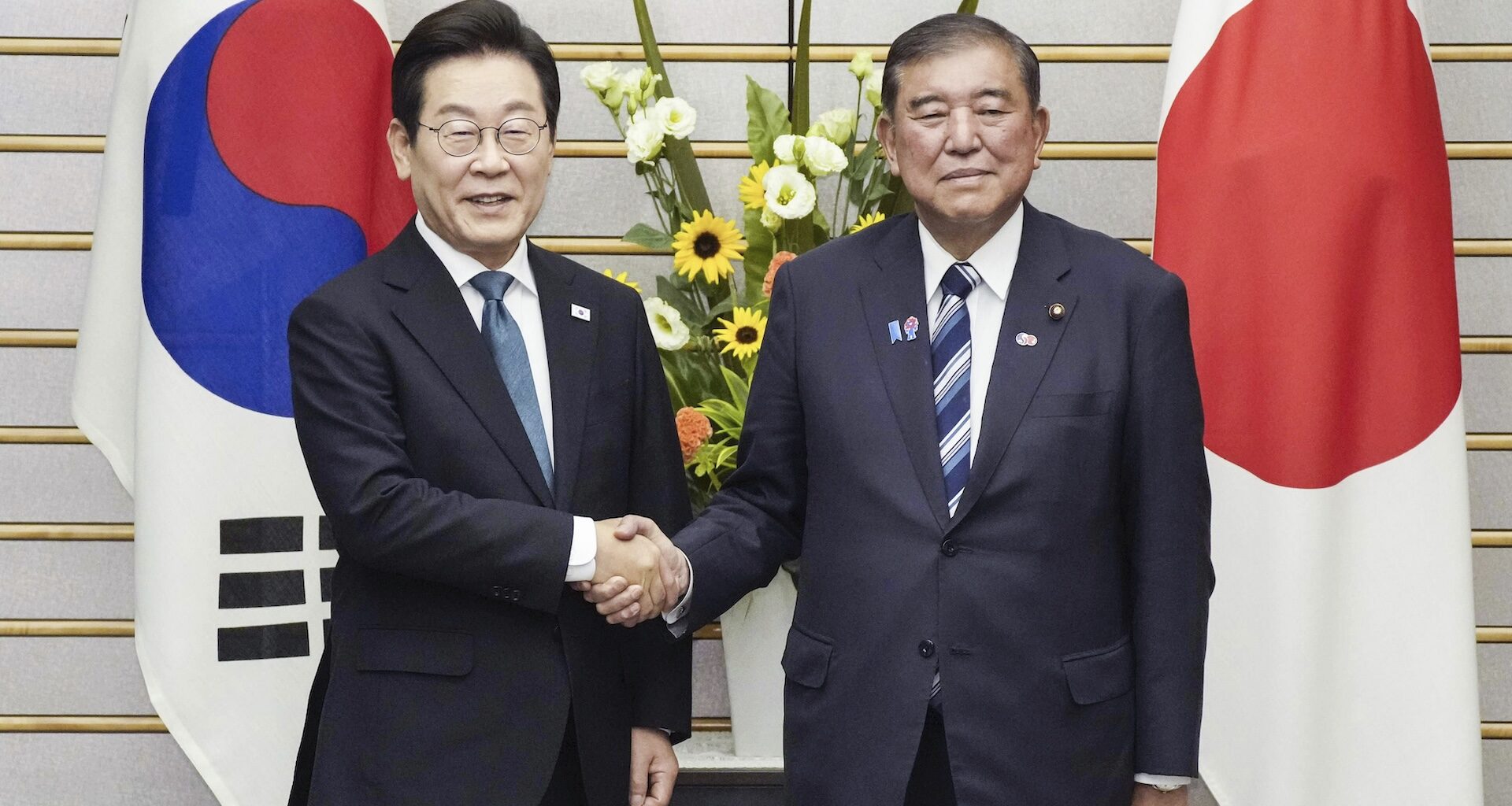When South Korean President Lee Jae Myung embarked on an overseas trip late last month, he made a notable break with precedent: He first stopped in Japan to meet with Prime Minister Ishiba Shigeru before traveling on to the United States, becoming the first South Korean leader in six decades to visit Tokyo before Washington.
The trip coincided with the 80th anniversary of South Korea’s liberation from Japanese colonial rule and the 60th anniversary of the two countries’ diplomatic normalization. Yet more striking than the historical symbolism was what the trip revealed about Lee: a progressive president consciously breaking from his past rhetoric that portrayed Japan as an adversary.
Instead, Lee is signaling that stronger ties with Tokyo are indispensable amid increased economic and trade pressures, heightened security challenges and shifts in domestic public opinion. Though still in its early days and partly a product of present circumstances, this pivot—if sustained—could reshape the economic and security architecture in Northeast Asia.
